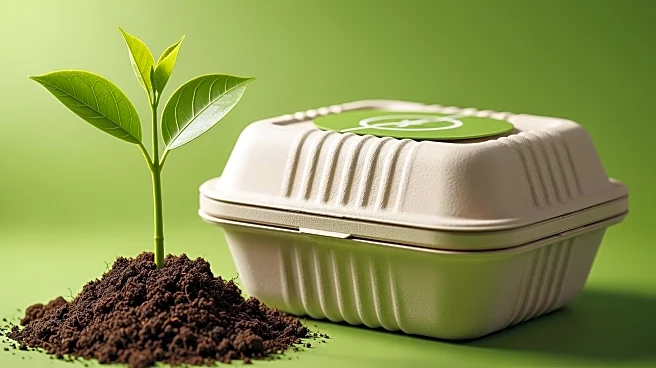What's Happening?
The United Nations Environment Programme (UNEP) and the World Wildlife Fund (WWF) have launched a program aimed at reducing single-use plastics in the food and beverage industry. The initiative, known
as Plastic Reboot, seeks to transform the industry's use of plastics by promoting circular systems that reduce, reuse, and prevent pollution. The program will support countries in creating policies to reduce the use of single-use and virgin plastics, and will engage with businesses to adopt reusable and recyclable plastics.
Why It's Important?
The Plastic Reboot program addresses the significant environmental impact of single-use plastics, which contribute to pollution and pose risks to human health. By targeting the food and beverage industry, the program aims to reduce plastic waste at its source, potentially leading to a decrease in plastic pollution. This initiative could set a precedent for other industries to adopt sustainable practices, promoting a circular economy and reducing reliance on fossil fuels.
What's Next?
The program will continue to partner with governments, businesses, and civil society organizations to implement circular systems and policies. As the initiative progresses, it may lead to the development of new technologies and practices that further reduce plastic waste. The program's success could encourage other sectors to adopt similar approaches, expanding the impact of circular systems on a global scale.
Beyond the Headlines
The program highlights the importance of addressing plastic pollution through systemic change, rather than focusing solely on waste management. By promoting circular systems, the initiative emphasizes the need for sustainable production and consumption patterns, which could lead to long-term environmental benefits. The program also underscores the role of collaboration among diverse stakeholders in achieving meaningful change.










